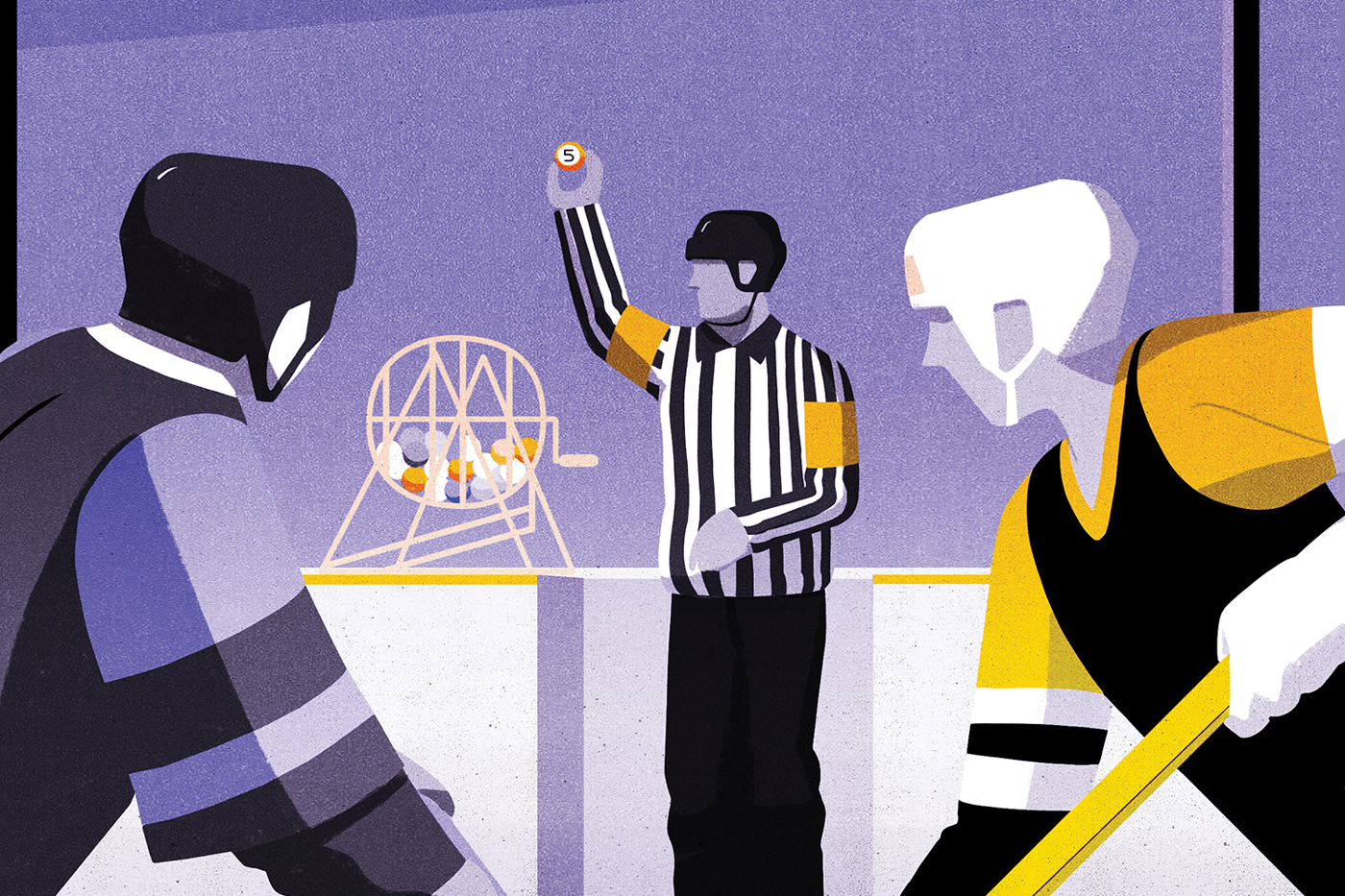My feet hurt. My shoulders stoop with the weight of coins in my vest. I’m into my third hour of my first charity bingo shift and I don’t understand any of it.
A serious-looking bingo player calls me over to sell her a few cards. Her table features a row of bingo daubers, a crumpled fast food bag and a John Wick doll. I peel off the bingo cards carefully, so as not to disturb their dark numeracy.
“Good luck!” I say after making change. She gives me a heavy sigh. “These are no good now.”
My son is in his second year of hockey and his registration fee covers a fraction of the cost of ice time, officials, administration and uniforms. I’ve become one of hundreds of parents dispatched to charity bingos to make up the rest, and it won’t be the last time I’ll be spoken to like a four-year-old.
I didn’t grow up playing hockey. My parents couldn’t justify the expense and, being visible, first-generation immigrants in the 1980s, they never felt welcome at children’s team sports. As a consequence, I never learned to skate.
But my son lives in a braver, newer world and the opportunity to watch him skate gracelessly after errant pucks is too charming to pass up. It’s why I find myself in a dingy hall, on a cold Sunday evening, ruining someone’s luck.
Bingo is solemn business. Players line their tables with special daubers and trinkets. They choose their spots carefully, and cards are marked with quiet, monastic concentration. They impatiently call out their winning cards and volunteers scurry over to check. The soft, disgusted crinkling of losing cards fills the hall after the final game of the round is finished. The post mortems begin.
I cannot deny feeling sad. The truth is, bingo isn’t complex. Anyone with any skill with a spreadsheet could replicate the whole enterprise, from dispensing cards and drawing balls to the final checks in the span of a productive afternoon. The afternoon’s games could be wrapped up in a matter of minutes. So why do it? Why play a slowed-down version of the lotto?
